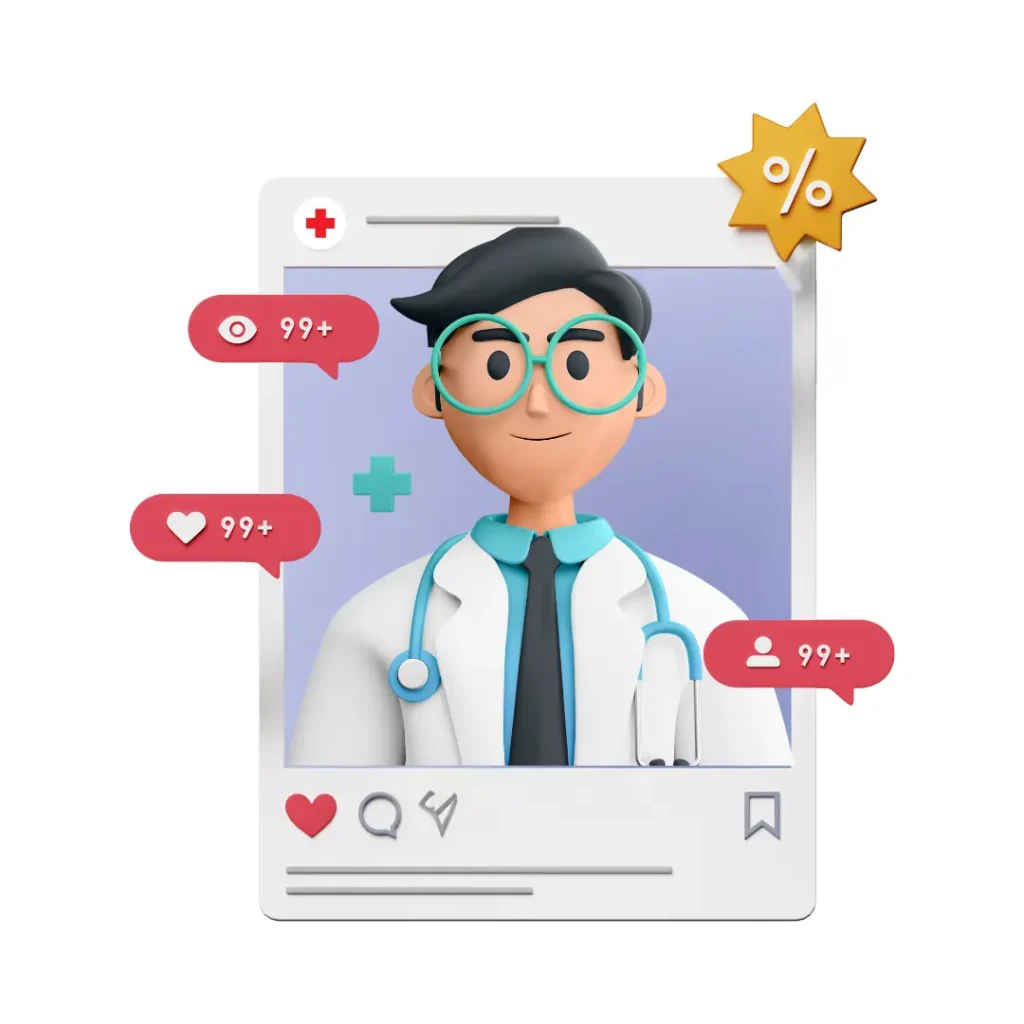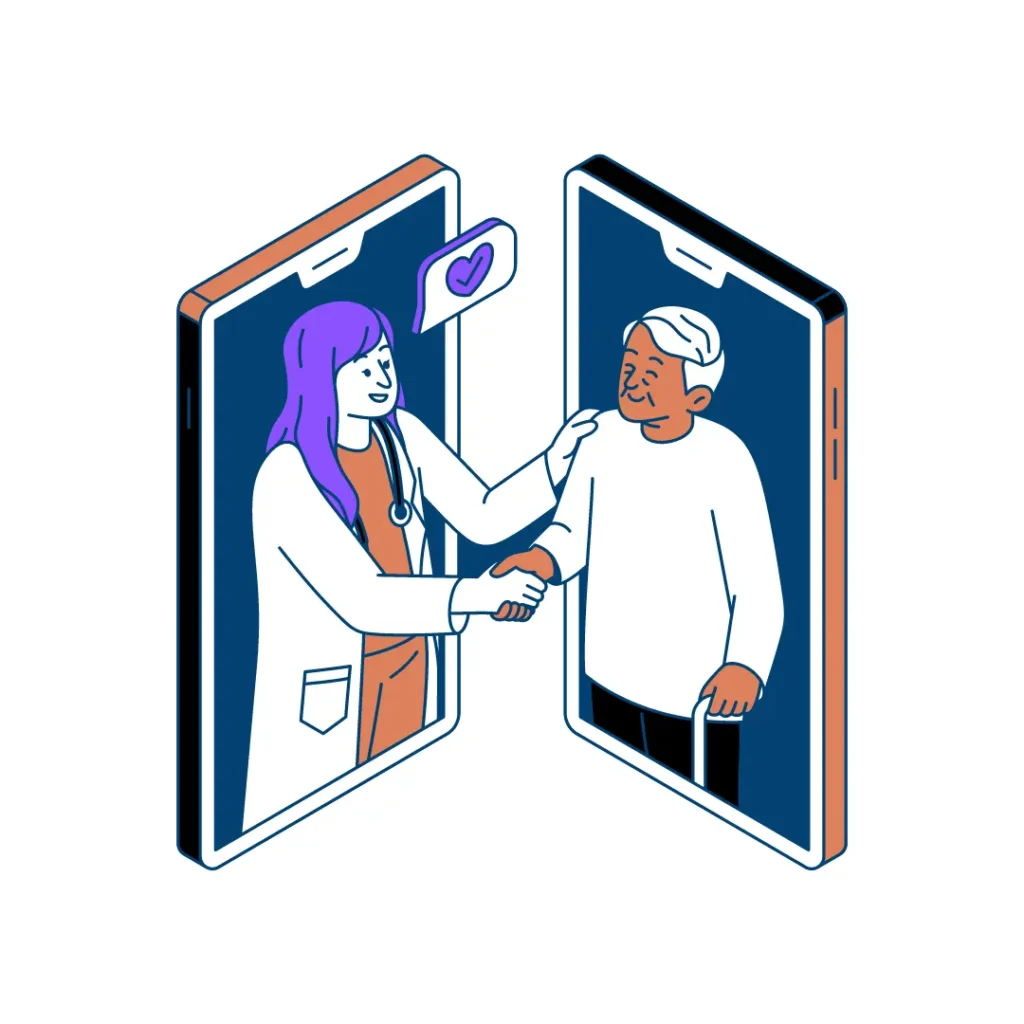In today’s digital landscape, social media marketing has become a vital tool for all industries, including healthcare. With millions of users online daily, healthcare providers must harness the power of social media to connect with patients and promote their services effectively.
Understanding Healthcare Social Media Marketing
What Is Healthcare Social Media Marketing?

Healthcare social media marketing involves using platforms like Facebook, Twitter, and Instagram to engage with patients and build brand awareness. It focuses on educating the public, fostering trust, and creating a community around healthcare services.
Why It Matters in Today’s Digital Landscape

In an age where patients seek health information online, social media offers a direct line of communication between healthcare providers and their audience. It also plays a critical role in combating misinformation and providing reliable health updates.
Benefits of Social Media Marketing for Healthcare
Increased Patient Engagement

Social media allows healthcare providers to interact with patients in real-time, making it easier to address concerns and build stronger relationships. Regular posts and updates keep patients engaged and informed about their health.
Enhanced Patient Education
By sharing informative content, healthcare providers can make complex medical information more accessible to the public. This educational approach empowers patients to make informed health decisions.
Building Trust and Authority

Consistently sharing accurate, reliable information on social media helps healthcare providers establish themselves as trusted authorities in their field. This trust is crucial for influencing patient decisions and fostering loyalty.
Cost-Effective Marketing Strategy
Social media marketing offers a cost-effective way for healthcare providers to reach a wide audience without the hefty price tag of traditional advertising. It allows for targeted campaigns that can be easily adjusted based on performance.
Key Platforms for Healthcare Social Media Marketing
Facebook is ideal for healthcare marketing due to its large user base and versatile content-sharing options. Providers can use it to post updates, share educational content, and engage with patients through comments and direct messages.
Twitter’s real-time nature makes it perfect for sharing quick health tips and participating in public health discussions. Its concise format allows providers to deliver timely updates and engage with industry trends effectively.
Instagram’s visual focus makes it a great platform for sharing images and videos that humanize healthcare services. Providers can showcase patient success stories, health tips, and behind-the-scenes glimpses of their practices.
LinkedIn is the go-to platform for professional networking and B2B marketing in healthcare. It’s effective for building relationships with other professionals, sharing industry news, and recruiting top talent.
YouTube
YouTube is ideal for long-form video content, such as educational videos and patient testimonials. It allows healthcare providers to explain complex medical concepts in a format that is easy for patients to understand.
Creating a Social Media Marketing Strategy for Healthcare
Defining Goals and Objectives
Healthcare providers must start by defining clear goals for their social media marketing efforts. Whether aiming to increase patient engagement, educate the public, or drive website traffic, having specific objectives is crucial for success.
Identifying Target Audience
Understanding the target audience is essential for crafting relevant and effective social media content. Providers should consider factors like age, gender, location, and health concerns when planning their campaigns.
Content Creation and Curation
Creating high-quality, informative content is at the heart of a successful social media strategy. Providers should focus on content that educates, engages, and provides value to their audience while staying true to their brand’s voice.
Scheduling and Consistency
Consistency is key in social media marketing. Healthcare providers should establish a regular posting schedule to maintain audience engagement and ensure that their content remains relevant and timely.
Compliance and Ethical Considerations
Healthcare providers must adhere to strict compliance and ethical guidelines when using social media. This includes protecting patient privacy, avoiding the promotion of unproven treatments, and ensuring that all content meets regulatory standards.
Challenges in Healthcare Social Media Marketing
Maintaining Compliance with Regulations
Navigating the complex regulatory landscape is one of the biggest challenges in healthcare social media marketing. Providers must ensure that all content complies with HIPAA and other relevant regulations to avoid legal issues.
Managing Patient Privacy
Patient privacy is a top priority in healthcare, and social media presents unique challenges in this area. Providers must be careful not to share any identifiable patient information and should use secure communication channels for patient interactions.
Dealing with Negative Feedback
Negative feedback is inevitable on social media, and how providers handle it can impact their reputation. Addressing concerns professionally and promptly is crucial for maintaining trust and credibility with patients.
Content Fatigue
Content fatigue can occur when providers struggle to keep up with the demand for fresh, engaging content. To combat this, healthcare providers should focus on quality over quantity and use a mix of content types to keep their audience interested.
Measuring the Success of Healthcare Social Media Marketing
Key Performance Indicators (KPIs) to Track
Tracking KPIs such as engagement rates, follower growth, and website traffic is essential for measuring the success of social media marketing efforts. These metrics provide valuable insights into what’s working and where improvements are needed.
Tools for Measuring Success
Tools like Google Analytics, Facebook Insights, and Hootsuite offer comprehensive analytics to help healthcare providers track the effectiveness of their social media campaigns. These tools can provide data on engagement, reach, and conversions.
The Role of Social Media in Crisis Management for Healthcare
Communicating During a Health Crisis
During health crises, social media serves as a critical communication tool for healthcare providers. It allows them to share timely information, provide updates, and address public concerns in real-time.
Managing Misinformation
Misinformation can spread quickly during a crisis, making it essential for healthcare providers to be proactive in sharing accurate information. Social media offers a platform for correcting falsehoods and keeping the public informed.
Future Trends in Healthcare Social Media Marketing
AI and Automation in Social Media
AI and automation are becoming increasingly important in social media marketing. In healthcare, these technologies can help streamline tasks like scheduling posts, responding to inquiries, and analyzing data.
The Rise of Telemedicine and Social Media
Telemedicine is on the rise, and social media plays a significant role in promoting these services. Providers can use social media to connect with patients, offer support, and facilitate virtual consultations.
Summary
Healthcare social media marketing is a powerful tool for engaging patients, building trust, and promoting services. By understanding the unique challenges and opportunities, healthcare providers can create effective strategies that enhance their online presence and improve patient outcomes.
FAQs
1. What is the best platform for healthcare social media marketing?
Facebook and Instagram are ideal for patient engagement, while LinkedIn is best for professional networking.
2. How can healthcare providers ensure patient privacy on social media?
Providers must adhere to HIPAA guidelines and avoid sharing identifiable patient information without consent.
3. What content performs best in healthcare social media marketing?
Educational content, patient testimonials, and visual content like infographics and videos perform well.
4. How often should healthcare providers post on social media?
Posting a few times per week on each platform is recommended for consistency and engagement.
5. What are common mistakes in healthcare social media marketing?
Common mistakes include ignoring compliance regulations, failing to engage with the audience, and inconsistent posting.

